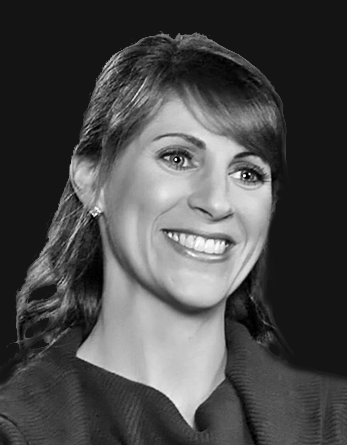
I think the church doesn’t know what to do with divorced people because the effects of divorce are so far-reaching.” A dear friend, who married and divorced at a very young age, made this revealing statement to me many years ago. She bravely walked a difficult road leading to emotional and spiritual health, not because a pastor walked with her, but because women discipled her along the way.
Do you cringe when the newly divorced woman knocks on your office door because you’re not sure how to balance empathy, emotional and ethical boundaries, and time management? You want to help, but you don’t know the best course of action.
First of all, you need to know that most divorced women seek your guidance not because they are attracted to you, but for a variety of other reasons:
- They miss the general comfort of a man.
- They miss the security of a man.
- They don’t trust themselves to make big decisions on their own (especially if they lived with a controlling husband).
- They are looking for a father figure for themselves or their children.
- They are angry and want validation.
- They are lonely.
- They are scared.
- They want you to side with them instead of their ex-husband.
- They want guidance.
Switch your lens
Maybe you see your interaction with divorced women as an “all or nothing” relationship: either you must journey with them until they reach a place of emotional recovery or you must keep a safe distance. What if you could find a healthier place in between?
With more women on church staffs and in lay leadership positions, it’s time to switch your lens. You no longer need to serve as a woman’s personal guide—the one to link arms and walk side by side with her as she pursues emotional healing and restoration.
Your job is to serve as the overseer—the one who draws the map and designs the course of action. You are her initial point of contact, the one who surveys the situation. You will check in with her from time to time, but it is another woman of spiritual maturity and authority who walks the intimate journey with her.
“Pay careful attention to your flocks, and see to the welfare of your herds Because riches do not last forever, nor does one dynasty retain power through all generations.” Proverbs 27:23–24 (VOICE)
As the overseer of your flock, it is your responsibility to empower your people. Know their talents and their passions. Find women gifted in the area of shepherding, then encourage them to use this gift to benefit the kingdom.
Getting started
As the overseer, start by meeting with the divorced woman. Assess her post-divorce situation and her stage in the grieving process. Listen to her. Gather information. Offer empathy. But don’t try to fix her; that’s a guaranteed way to alienate her. And don’t allow her to vent indefinitely. She has a mother, a sister, or a best friend for that.
Next, determine her three greatest needs. Most likely she will have many needs, including:
- Employment (especially if she never worked outside the home)
- Housing
- Financial support
- Physical help (determine if professional help is needed if the woman is addicted to alcohol or prescription drugs, or if there was physical or sexual abuse in the marriage)
- Mental help (a diagnosis and treatment for depression might be needed)
- Emotional support (this could come in the form of professional counseling, friendship, mentoring, accountability, etc.)
- Safety (you will need to contact the police if the marriage was abusive)
- Spiritual support (offering her a church home if she doesn’t have one, a Sunday school class, Bible study, prayer partner, Life Group)
Your job is not to solve all her problems, but to point her to the appropriate resources according to her most urgent needs. Keep a list available of the following resources and ministries (you might want to make copies and pass them out as needed):
- Employment and educational opportunities (some communities have ministries offering education and job skills)
- Qualified Christian counselors (include phone numbers, addresses, and areas of specialty)
- Support groups (examples: GriefShare, DivorceCare, DC4K [DivorceCare for Kids], AA, Al-Anon, Celebrate Recovery, etc.)
- Bible studies and Sunday school classes offered at your church that fit her demographic (single/divorced woman)
- Sunday school classes and programs your church offers kids and teens (in case she has children)
Finally, after you meet with the woman, take some time to brainstorm a suitable mentor: your woman’s minister, a Life Group leader, a Sunday school teacher, or a lay leader in the church who is qualified to shepherd this woman as she rebuilds her life.
Checking in
After you have successfully matched the two women, set a time four weeks out to meet with the divorced woman. Ask the following questions:
- How do you spend your time with your mentor?
- How is that relationship going?
- How are your children adjusting? (if applicable)
- Have you been attending church/Sunday school? If so, has it been beneficial? Difficult?
- Think back to the woman’s three greatest needs. Ask about each of them.
- How can our church support you? Pray for you?
After meeting with the woman, make three more appointments for four weeks, eight weeks, and six months out. In between meetings keep in touch with her mentor to ensure the mentoring relationship is compatible and the divorced woman is progressing in her journey.
Questions to ask the mentor include:
- How often are you meeting?
- Are your meetings consistent?
- Are you able to talk beyond surface-level conversations?
- What do you do during your meetings (read a book together, go through a Bible study, engage in general conversation, etc.)?
- What would you say are the divorced woman’s three greatest needs?
- How do you plan to address these needs?
- How can I pray for you and your mentee?
By empowering a trusted woman to walk alongside a newly divorced woman, you accomplish several things: First, you create a natural boundary protecting all those involved. Second, you follow the Titus 2 model of mentorship. Third, you put processes in place so that when the next divorced woman comes to you, there is a protocol to follow ensuring protection, healing, and supporting one another by utilizing members in the body of Christ.
“Where there is no guidance the people fall, But in abundance of counselors there is victory.” Proverbs 11:14 (NASB)
